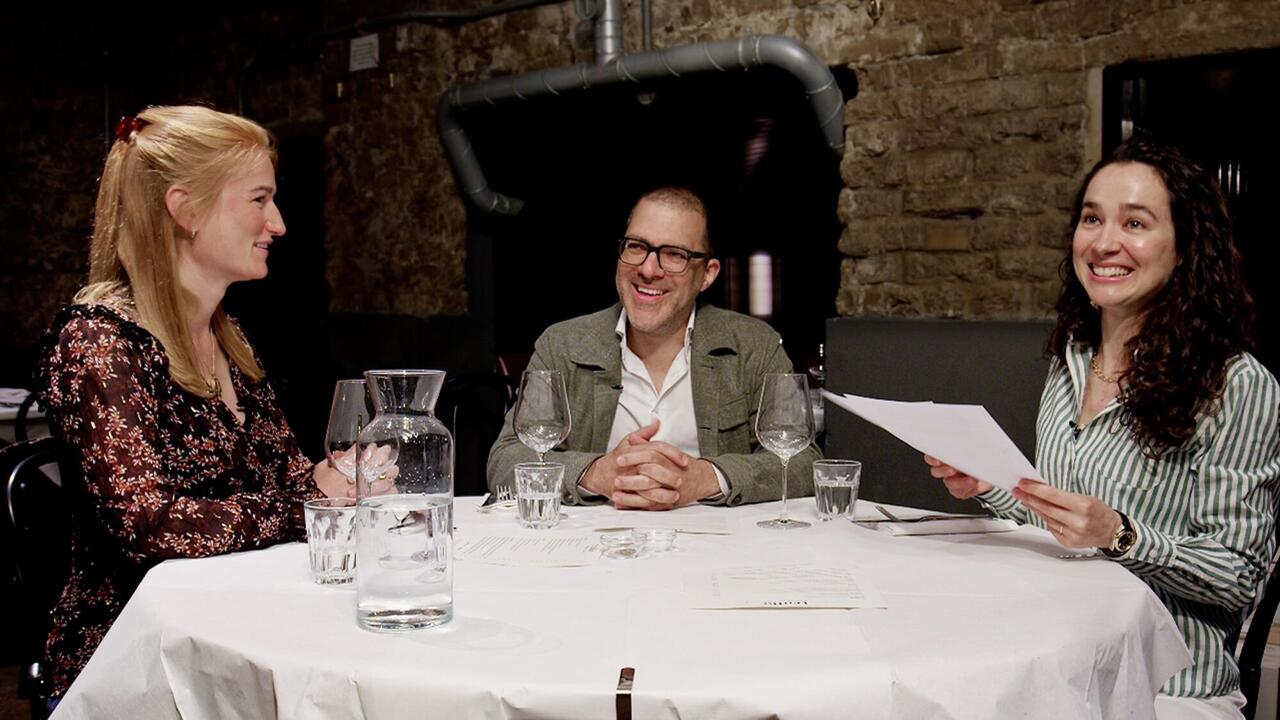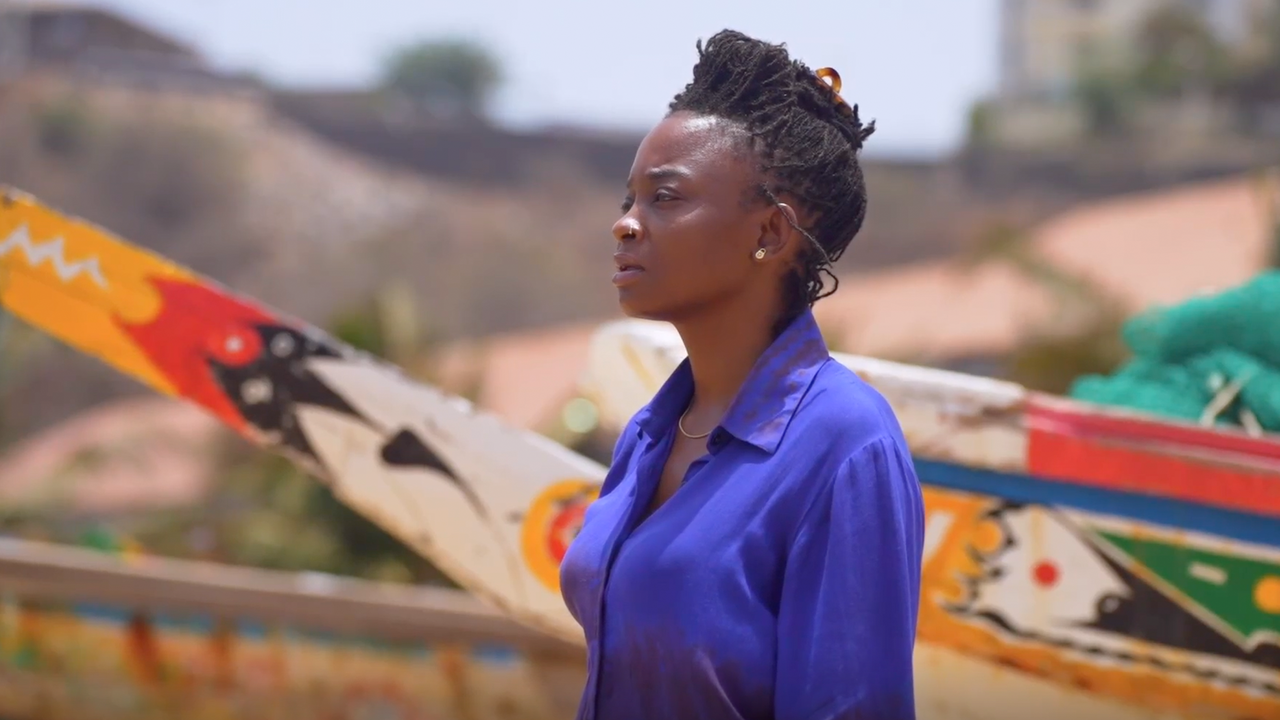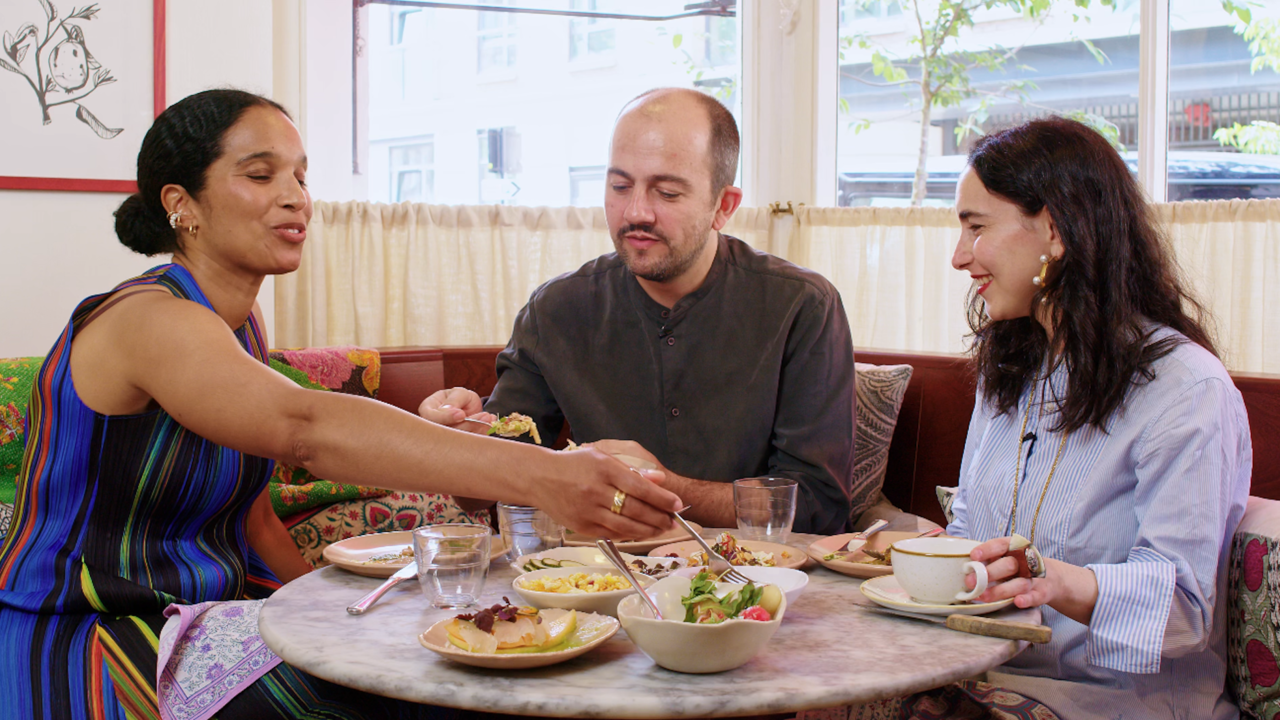Rene Matić: Blackness, Britishness and Queerness
The London artist intertwines photography, performance and subculture to explore identity in powerfully intimate ways
The London artist intertwines photography, performance and subculture to explore identity in powerfully intimate ways

Rene Matić often talks about their work as a ‘lifeline’. Born and raised in Peterborough, like many young people, Matić’s creative practice emerged from a place of dearth and necessity. The city received significant investment in the 1970s and ’80s to absorb London overspill, but deteriorated owing to a lack of continued funding and is now regularly voted one of the worst places to live in the UK, assessed by the Arts Council as a place of ‘low cultural offer’. Despite this, Matić’s 2022 exhibition at South London Gallery, ‘upon this rock’, was in many ways a love letter to their hometown – its title a reference to the city’s motto – written through the stories of their family members who still live there.

Though photography has always been at the heart of their practice, the images that Matić is known for were never really intended to be shown publicly. They found the cheap-and-cheerful point-and-shoot camera which they still use left in a vacant room in their studio building. Over the next seven years, they used it to photograph every corner of their life. Friends who came and went, the queer and BIPOC club nights we danced at, our young marriage and the homes we made together, family members growing up and growing old. Birthdays, weddings, funerals, gigs, protests, outfits, hairstyles, holidays – they captured it all humbly and indiscriminately.
The photos were cheaply developed at Snappy Snaps and slowly filled large family photo albums. In 2021, Rózsa Farkas, founding director of Arcadia Missa gallery in London, visited Matić’s home studio and convinced them to exhibit the photographs. Matić agreed and included a small selection of the hundreds of pictures they had amassed in their exhibition and publication at the gallery, ‘flags for countries that don’t exist, but for bodies that do’ (2021). Like any family photo, these intimate portrayals are tethered to the political landscape from which they emerged. They picture our extended, queer family against the backdrop of years of Tory governance and austerity, violent anti-immigration and anti-trans rhetoric, the Black Lives Matter movement, fourth-wave feminism, the rise of the far right, Trump, Brexit, Covid – the list goes on. As Hannah Black writes in her introduction to the flags book, ‘Within this shared and internal world, Rene and their friends make something of nothing, weaving together a social canopy to defend against the bad weather of the state.’

Since then, Matić’s photographs have found new homes and audiences worldwide, including most recently a commission by Deutsche Bank for a site-specific installation at their new London headquarters, where close, abstract crops of Matić’s photos hang on the walls of their trading and working floors. For Frieze London 2024, Deutsche Bank have invited Matić to intervene in their lounge, with visitors generously invited into Matić’s tender and personal inner world.
Though they are now best known for their photographs, in many ways, Matić’s pictures serve as the blueprint for a wider image-making practice. Their solemn self-portraits serve as source imagery for films such as Brown Girl in the Art World III (2019), in which they interrogate the process and complex politics of imaging the self. Their portraits of lovers, friends and family act as early experiments for films such as Many Rivers (2022), centred on the story of their father, Paul. Their ambitious ongoing photo series, ‘a girl for the living room’, documents the private life of their friend and renowned trans activist and writer, Travis Alabanza, and was first presented at the Martin Parr Foundation, Bristol, in 2023.
The kinship between their photos and films is exemplified in Matić’s series of mesmeric one-shot, slow-motion dancing films. In Brown Girl in the Art World III, Matić is pictured in skinhead gear dancing outside a pub draped in St George’s Cross flags in Skegness. In we give a lead to Britain (2020), they reenact the 1955 ‘No Colour Bar’ dance at Lambeth Town Hall, Brixton, in which Caribbean and British interracial couples were invited to dance together as a demonstration of multicultural solidarity. In the most recent iteration for an exhibition at Kunsthalle Wien, they are wearing a black leotard, dancing in and out of a bright white spotlight. This work takes as a starting point the outrage that erupted in Vienna with Josephine Baker’s appearance in the city in 1928. Their performance across each of these films is an exhausting and chaotic mash-up of ballroom vogueing, northern soul, fighting and falling.

Dance and its many histories and resonances pervade Matić’s work, serving as a fertile site to explore the corporeal realities of marginalized bodies, typified through their recurrent examination of northern soul, skinhead and two-tone music. Matić – themselves a second-generation skinhead of third-generation St Lucian heritage – obsessively returns to these subcultures as a tool to delve into the complex relationship between West Indian and white working-class culture in Britain. These dances tell stories, and those stories are their own. As I write this, the UK is witnessing a coordinated wave of far-right terrorism, demonstrating the terrifying outcome of the state-and media-sponsored culture war. I am reminded of Matić’s 2020 film documenting a performance in which they had the far-right slogan ‘Born British, Die British’ tattooed on their back by notorious skinhead tattoo artist Lal Hardy. When they first came to me with the idea for this work, I urged them not to do it, fearing that the words and their connotations were too violent to hold forever on their skin. They argued that by inscribing those words on their body, they might collapse and claim the phrase as their own, problematizing the myth of a pure, unadulterated Britishness and speaking to the violence that Britain continues to enact on bodies like theirs.
Since then, this life-long performance has been met with all imaginable responses – from despair to celebration. Wherever you land on that spectrum, it speaks to what Matić’s work does so well – providing vital, slippery and unfinished examinations of Britishness, Blackness and queerness, and their myriad points of conflict and convergence.
This article first appeared in Frieze Week, London 2024 under the title ‘Rene Matic's Vital Examinations of Britishness, Blackness and Queerness’.
Further Information
Frieze London and Frieze Masters, 9 – 13 October 2024, The Regent’s Park.
Limited early bird tickets are on sale – don’t miss out, buy yours now. Alternatively, become a member to enjoy premier access, exclusive guided tours and more.
To keep up to date on all the latest news from Frieze, sign up to the newsletter at frieze.com, and follow @friezeofficial on Instagram, X and Frieze Official on Facebook.
Main image: Rene Matić, Destination/Departure, 2020. Courtesy: the artist and Arcadia Missa, London; photograph: Josef Konczak
























